Guggenheim Fellowships Awarded to Six BU Researchers and Scholars
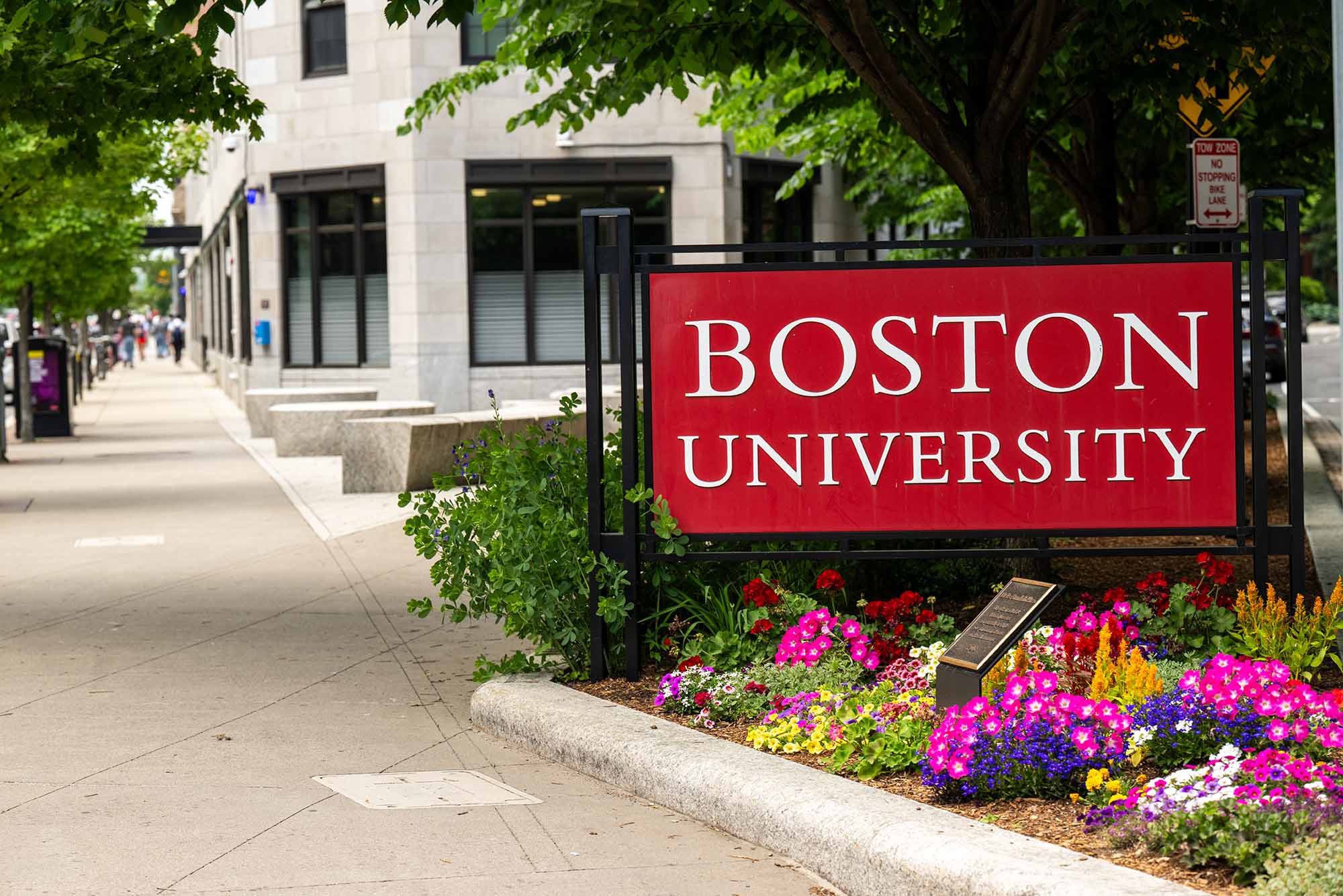
BU’s 2025 Guggenheim Fellows are artist Lynne Allen, writer and scholar Louis Chude-Sokei, space scientist Merav Opher, physicist Anders W. Sandvik, historian Bruce J. Schulman, and historian Quinn Slobodian. Photo by Cydney Scott
Guggenheim Fellowships Awarded to Six BU Researchers and Scholars
Winners, recognized as “visionary scientists, scholars, writers, and artists,” will use honor to support work on artificial intelligence, space science, American history, and more
For a century, Guggenheim Fellowships have given the nation’s most distinguished scholars and artists—from writer James Baldwin to environmentalist Rachel Carson—the freedom and funding to let their interests and creativity take flight. Now, in the program’s 100th year, six Boston University researchers and scholars have received the honor.
BU’s 2025 Guggenheim Fellows are artist Lynne Allen, writer and scholar Louis Chude-Sokei, space scientist Merav Opher, physicist Anders W. Sandvik, historian Bruce J. Schulman, and historian Quinn Slobodian. Each plans to use the honor to drive an ambitious—and, in one case, out of this world—project.
Given annually by the John Simon Guggenheim Memorial Foundation, the awards support exceptional mid-career individuals with a proven record of excellence—and the potential to achieve more. Each fellow is given a financial stipend to help fund their work. The program aims to enable “scholarship in any field of knowledge and creation in any art form, under the freest possible conditions.” This year, the foundation named 198 fellows across 53 fields.
“At a time when intellectual life is under attack, the Guggenheim Fellowship celebrates a century of support for the lives and work of visionary scientists, scholars, writers, and artists,” said poet Edward Hirsch, president of the Guggenheim Foundation, in announcing the winners. “We believe that these creative thinkers can take on the challenges we all face today and guide our society towards a better and more hopeful future.”
Bringing Artistic Visions to Life
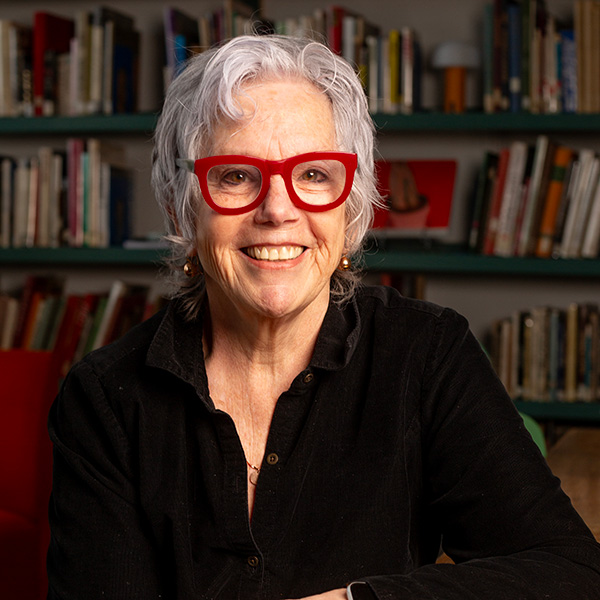
Fine artist Lynne Allen’s work has been shown in some of the world’s premier galleries and museums, from New York’s Whitney Museum of American Art to London’s Victoria and Albert Museum. A renowned printmaker who uses a variety of media and techniques, she plans to use her Guggenheim Fellowship to expand her use of textiles and step into new realms, including native quill and beadwork.
“These are practices I’ve long been interested in but haven’t had the time or resources to pursue fully,” says Allen, a College of Fine Arts professor of art, printmaking, and chair of the print media and photography MFA program. “I’ve been dreaming of ways to push my ideas into new territories. And with the freedom to travel and dedicate focused time to this exploration, I can finally bring those visions to life.”
I’ve been dreaming of ways to push my ideas into new territories, and with the freedom to travel and dedicate focused time to this exploration, I can finally bring those visions to life.
A winner of two Fulbright scholarships, Allen calls the latest honor empowering, transformative, and humbling: “I’ve never felt so deeply seen or affirmed in my work,” she says. Her recent collections include a series of etchings and woodcuts exploring climate change and endangered species, and “Liar Liar,” etchings commenting on treaties between the US and Native American Nations.
“The Guggenheim’s philosophy of supporting research and creative work without constraint aligns perfectly with how I approach my practice,” says Allen. “That kind of freedom—to explore without limits—creates the conditions for real growth.”
Harvey Young, CFA dean, calls Allen “one of the world’s most exciting professional printmakers—innovative and endlessly inspiring, she leads by example and models excellence as an artist, educator, and colleague.”
“New Ways to Understand Ourselves and One Another”
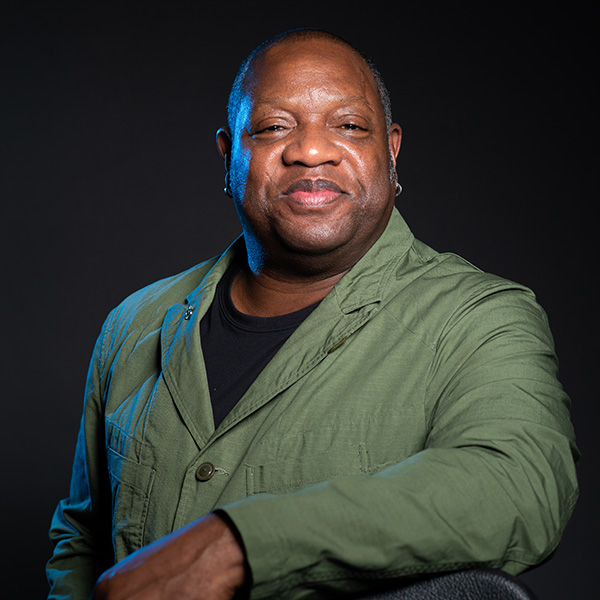
Louis Chude-Sokei, a College of Arts & Sciences professor of English, is celebrated as a writer—the New York Times praised the “beauty” of his 2021 memoir, Floating in a Most Peculiar Way—but his work and scholarship isn’t limited to literature. In recent projects, he’s curated art installations, produced music albums, and collaborated with composers and dancers. Chude-Sokei’s boundary-blending and boundary-crossing approach to artistic and intellectual exploration is reflected in his forthcoming nonfiction book, Machines of Flesh and Blood. According to online literary magazine Brittle Paper, it will delve into the “synchronous evolution of blackness and artificial intelligence.”
Chude-Sokei says the Guggenheim award will help him take greater creative risks—something particularly important in a time when, he says, “intellectual and creative freedom are becoming delimited by political control and cultural fear.” He’ll use the funding to complete his book and grow an international sonic art and archiving project he founded.
As someone who works against the grain, such recognition is particularly important. It helps authorize the charting of new paths and new forms of knowledge and expression
“As someone who works against the grain, such recognition is particularly important. It helps authorize the charting of new paths and new forms of knowledge and expression,” says Chude-Sokei, who is also director of BU’s African American & Black Diaspora Studies Program, where he holds the George and Joyce Wein chair. “Such things are all too often silenced or obscured by the stylistic conventions and ideological orthodoxies sanctioned by mainstream thinking, particularly about race, culture, and politics.”
According to Alice Tseng, CAS associate dean of the faculty for the humanities and a professor of Japanese art and architecture, Chude-Sokei’s works on “the literary, political, and cultural phenomena of the African and Black diaspora offer new ways to understand ourselves and one another.” She says “his ability to bridge culture, history, and identity through storytelling inspires us to confront the complexities of our shared human experience. This fellowship will undoubtedly propel his research and ongoing work to reach even wider audiences.”
Mapping a Giant Space Cloud
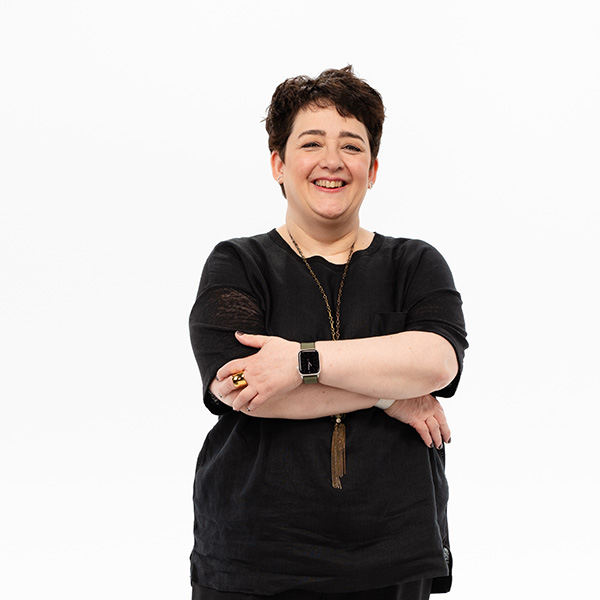
For Merav Opher, a CAS professor of astronomy, becoming a Guggenheim Fellow is a long-held aspiration—but one that once seemed unlikely. She says that in the program’s century-long history, very few women astronomers have been given the honor—even fewer who specialize in space science. Opher thinks she may just be the second. “Guggenheim was a huge dream I had for so many years,” she says. “I hope my students, or anybody else, will say it’s worth dreaming, thinking bold.”
With the award’s funding, Opher will expand her study of the heliosphere, a plasma shield that protects our solar system. A former William Bentinck-Smith Fellow at Harvard Radcliffe Institute, she has previously won a National Science Foundation Faculty Early Career Development Program (CAREER) award and Presidential Early Career Award for Scientists and Engineers.
“Merav has made groundbreaking discoveries about the heliosphere,” says Michael Sorenson, CAS interim associate dean of the faculty for the natural sciences and a professor of biology. “With her Guggenheim Fellowship, Merav will be taking her work in an exciting new direction, exploring how dynamic interactions between the heliosphere and interstellar medium may have shaped the evolution of life on Earth over the course of millions of years.”
Opher is particularly interested in researching a giant space cloud her team recently discovered, which she thinks may have messed with the heliosphere and Earth’s climate millions of years ago. It is, she says, a project that will require imaginative thinking, and that may have been tough to pursue with traditional funding.
It’s very rare you get something that is vouching on your capability to dream, somebody telling you, ‘I trust that whatever you come up with will be interesting.’ That’s a huge vote of confidence.
“A lot of science or research in general is safe—funders want to know that they would get something back,” says Opher, who leads the BU-based SHIELD (Solar wind with Hydrogen Ion charge Exchange and Large-Scale Dynamics) NASA DRIVE Center. “It’s very rare you get something that is vouching on your capability to dream, somebody telling you, ‘I trust that whatever you come up with will be interesting.’ That’s a huge vote of confidence.”
Extended Time for Complex Physics
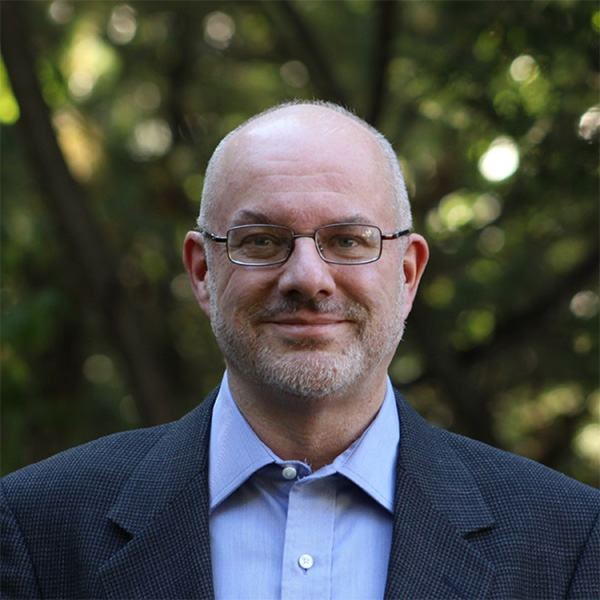
A CAS professor of physics, Anders W. Sandvik will use his fellowship to gain a little time and room to think—it will help support a sabbatical. “It’s extremely useful to be able to have an extended time period to focus on research,” he says, “finishing up ongoing projects and starting new ones with less distractions than normally.”
Sandvik tackles extremely complex science: according to his bio, much of his work is “computational research on interacting quantum many-body systems,” or how tiny particles like electrons get on with each other in systems like magnetic solids or emerging quantum computing devices.
“The project I will pursue is related to theoretical descriptions of phase transitions—analogues of water transforming between its gas and liquid states, but on the electronic level in certain solids, where, as an example, the properties of a material can change suddenly in response to external conditions,” says Sandvik. “I have been working in this field—of computational modeling of phase transitions—for essentially my entire career, and I feel very excited about the fact that things are still developing and going in new unexpected directions that I had never imagined even just a few years ago.”
According to Shyamsunder Erramilli, a CAS professor and chair of physics, the award reflects Sandvik’s standing in his field. “Anders is a highly regarded quantum computational physicist known for his creative approaches for modeling quantum systems,” he says. “Anders is also an exceptional research mentor with many of his students winning significant prizes of their own.”
It is particularly inspiring to know that others believe that there is still more to come—a confidence booster of sorts.
Especially encouraging for Sandvik is the Guggenheim Foundation’s acknowledgment of both past success and future potential. “It is particularly inspiring to know that others believe that there is still more to come—a confidence booster of sorts,” he says.
A Distinguished History of the United States
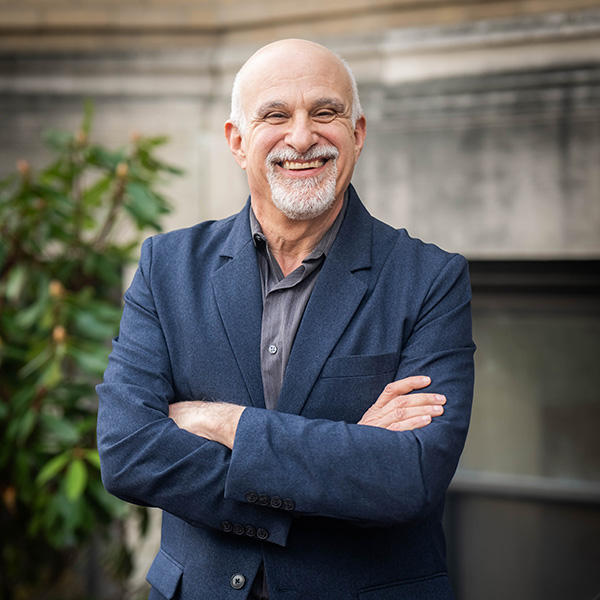
An expert on US history, Bruce J. Schulman is the author of three books and will use his Guggenheim Fellowship to contribute to a grand editorial project. The multivolume Oxford History of the United States is an ongoing effort to document the nation’s past; Schulman, BU’s William E. Huntington Professor of History, will write a volume covering the period between 1896 and 1929. The Atlantic has called Oxford History, “the most distinguished series in American historical scholarship.” Schulman says his book will revive “scholarly debate about the emergence of the modern United States” and address enduring, topical issues: “How can people build functioning nation-states out of diverse regions and peoples, if that’s even possible? What are the constituents of a nation? How do people understand nationhood and how have those conceptions changed over time?”
According to his colleague and fellow historian Arianne Chernock, CAS associate dean of the faculty for the social sciences, Schulman’s Guggenheim award is “a testament to his exceptional scholarship, dedication, and profound contributions as a leading American historian. I am thrilled that Bruce will be able to use the Guggenheim to complete his volume of the Oxford History of the United States.”
Schulman, who directs BU’s American Political History Institute, says he’s deeply honored by the fellowship, but that he owes much to his many colleagues and students, past and present.
I see this fellowship less as recognition of any personal achievement than as a product of the enlivening cross-fertilization of research and teaching I’ve been fortunate to find at BU.
“Over four decades as a professional historian, 32 of them at BU, interactions with undergraduates, colleagues, and graduate advisees have constantly refreshed my scholarship with new questions, helped me clarify my thinking, honed my ability to communicate new findings, and given me a nurturing intellectual community,” he says. “I see this fellowship less as recognition of any personal achievement than as a product of the enlivening cross-fertilization of research and teaching I’ve been fortunate to find at BU.”
A Guggenheim and a New Book—on the Same Day

In a moment of serendipity, Guggenheim’s announcement of its 2025 class of fellows came on a big day for Quinn Slobodian, a Frederick S. Pardee School of Global Studies professor of international history. It was also publication day for his fourth book, Hayek’s Bastards: Race, Gold, IQ, and the Capitalism of the Far Right. Favorably reviewed in the New York Times (“bracingly original”) and Washington Post (“indispensable”), the book tracks the growth of the global far right and how, according to its publisher, neoliberals “articulated a philosophy of three hards—hardwired human nature, hard borders, and hard money—and forged the alliances with racial psychologists, neoconfederates, ethnonationalists, and goldbugs that would become known as the alt-right.” His previous book was 2023’s Crack-Up Capitalism: Market Radicals and the Dream of a World Without Democracy, which was named a Fortune best book of the year.
The fellowship will support another writing project—“a history of the idea of human nature, the backdrop for much of the politics of the present,” says Slobodian.
“I’ve been thinking about the relationship between ideology and knowledge production for some time, examining the often insurgent ideas in motion that are lumped under the large category of neoliberalism,” he says. “This is a chance to dig into some of the more fundamental shifts in the 20th century when we started to see humans as a special kind of animal.”
Like his fellow winners, Slobodian calls the win an honor—albeit one he wishes was open to a broader range of people. “Perhaps future grants could be made to people based on the principle of [not only] who has the strongest proposals, but also who needs the funding most,” he says.
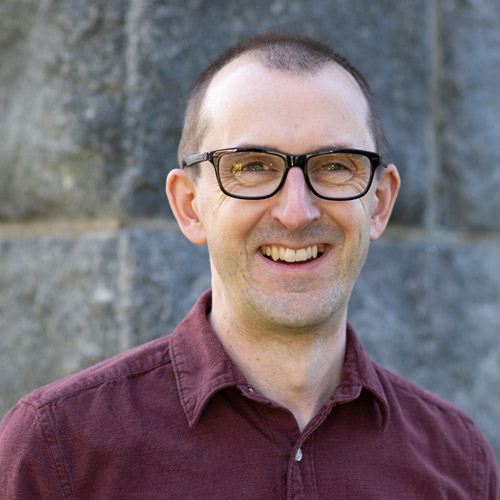
Comments & Discussion
Boston University moderates comments to facilitate an informed, substantive, civil conversation. Abusive, profane, self-promotional, misleading, incoherent or off-topic comments will be rejected. Moderators are staffed during regular business hours (EST) and can only accept comments written in English. Statistics or facts must include a citation or a link to the citation.